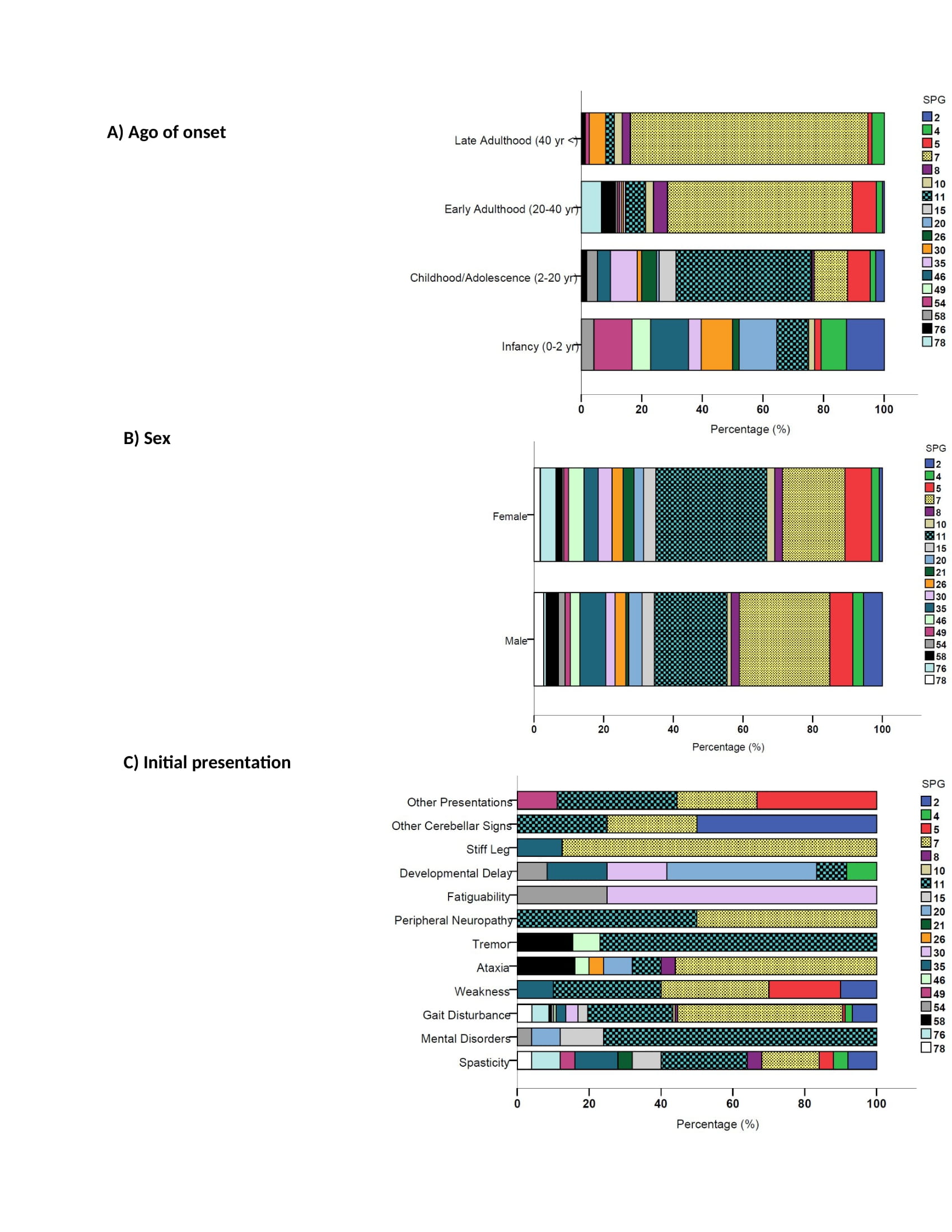Category: Genetics (Non-PD)
Objective: To investigate genotype-phenotype associations in hereditary spastic paraplegia (HSP) with a focus on movement disorders.
Background: HSP is a rare genetically-driven disorder associated with mutations in >80 loci designated SPGs (SPastic parapleGia). The clinical hallmark of HSP is progressive spastic paraparesis due to degeneration of the corticospinal tracts. It is increasingly recognized that the phenotypic spectrum of HSPs can extend to include other neurologic features, including movement disorders.
Method: We performed a systematic review and individual participant data (IPD)-level meta-analysis by retrieving publications from Medline/EMBASE/Web Science on HSP with a SPG genotype. Studies were included only if individual-level information was accessible and at least one patient with a movement disorder was reported for that genotype. Out of 21,957 hits, 192 manuscripts with a total of 1,413 HSP cases were eligible. Demographic and clinical features were analyzed and compared between two HSP groups: manifested with (HSP-MD, n=767) or without (HSP-nMD, n=646) a movement disorder.
Results: The HSP-MD group had an older age-of-onset (20.5±16.0 vs. 17.1±14.2 yr, p<0.001). SPG7 (29.1%) and SPG11 (32.3%) were the most frequent genotypes in HSP-MD and HSP-nMD groups, respectively. Frequency of different SPGs in HSP-MD patients presented with various initial characteristics are shown in Figure 1. HSP-MD patients with SPG7 had higher frequency of later onset during adulthood (82.9% vs. 8.5%, p<0.001), ataxia (96.8% vs. 70.6%, OR=12.6, p<0.001), extraocular movement disturbances (52.7% vs. 24.5%, OR=3.4, p<0.001) and seizure (11.7% vs. 3.5%, OR=3.7, p=0.007) compared to those with SPG11. SPG11 mutants were more frequently associated with consanguinity (65.1% vs. 31.3%, OR=4.1, p=0.012), parkinsonism (11.2% vs. 1.6%, OR=7.8, p<0.001), dystonia (10.5% vs. 2.1%, OR=5.4, p=0.001), peripheral neuropathy (60.1% vs. 5.3%, OR=26.9, p<0.001), and cognitive dysfunction (80.4% vs. 10.6%, OR=34.5, p<0.001).
Conclusion: This systematic IPD-level meta-analysis provides the largest data on genotype-phenotype associations in HSP. Several clinically relevant phenotypic differences were found between various genotypes in demographic and neurologic features, which can possibly facilitate diagnosis in resource-limited settings.
To cite this abstract in AMA style:
SM. Fereshtehnejad, P. Saleh, L. Oliveira, N. Patel, S. Bhowmick, G. Saranza, L. Kalia. Movement Disorders in Hereditary Spastic Paraplegia (HSP): A Systematic Review and Individual Participant Data Meta-Analysis [abstract]. Mov Disord. 2022; 37 (suppl 2). https://www.mdsabstracts.org/abstract/movement-disorders-in-hereditary-spastic-paraplegia-hsp-a-systematic-review-and-individual-participant-data-meta-analysis/. Accessed February 15, 2026.« Back to 2022 International Congress
MDS Abstracts - https://www.mdsabstracts.org/abstract/movement-disorders-in-hereditary-spastic-paraplegia-hsp-a-systematic-review-and-individual-participant-data-meta-analysis/

